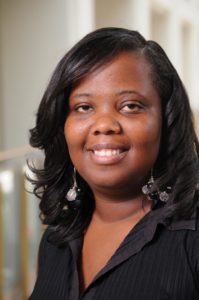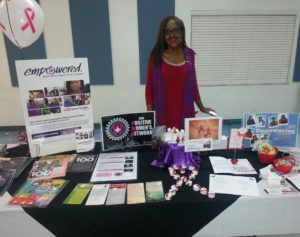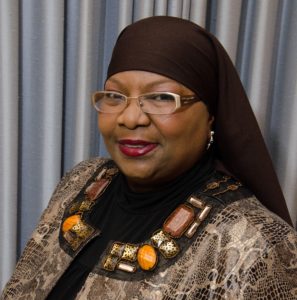HIV and AIDS Activists, and Their Incredible Work Throughout Their Lives
Reflecting back on 2017 observing many of its political and social events, it is crucial to highlight a major concept that has been highly influential not only throughout society, but on social media, where people especially on Facebook, coming from different places around the world, started to connect and openly discuss and share their stories about issues involving sexism, harassment, discrimination, homophobia, and the fear of losing healthcare. It had become revolutionary, especially on January 21st 2017, during the Women’s March, in which Facebook feeds were occupied with inspiring and heart lifting videos, photographs and messages, posted by people who had their own perception of what is the beauty behind all of these people marching on the streets and getting their ideas finally recognized.
The concept is activism- political, social and art activism, where people of different professions and interests have gathered together in the name of feminism, human rights and justice. Of course, one of the most memorable marches was The Women’s March, which has its significance in many human rights fields and opened up topics such as immigration, misogyny and inequality. Another is the Climate Change March, a march that started a serious dialogue on the next challenges and steps to improve the environment. Also the Immigrants March, where people gathered and openly criticized the Trump’s administration and their policies on the travel ban and lastly, #KillTheBill protest, which has gained popularity and media attention because of its fearless and courageous activists that have for months stood up and fought to get their messages across. Some of these activists talk about what activism means to them in their everyday lives and how the concept of solidarity is important in every human rights movement.
 Evany Turk is the membership engagement coordinator for Positive Women’s Network-USA and has been an HIV activist for approximately 10 years. Turk opens up about the beginning of her role in advocacy, in which she remembers how she was invited to a city council meeting and made a statement on the fact how being housed and living with HIV helped her stay healthy. She reflects on how she was anxious since she had no idea she would be speaking to the mayor. “I was nervous because I’m typically a shy person, but I did it and was empowered. After that experience I joined a group in Illinois called the Illinois Alliance for Sound AIDS policy where I learned more about how local, state and national policies and how my voice, my story could help legislators understand the decisions they were making when it comes to individuals and communities”, demonstrated Turk.
Evany Turk is the membership engagement coordinator for Positive Women’s Network-USA and has been an HIV activist for approximately 10 years. Turk opens up about the beginning of her role in advocacy, in which she remembers how she was invited to a city council meeting and made a statement on the fact how being housed and living with HIV helped her stay healthy. She reflects on how she was anxious since she had no idea she would be speaking to the mayor. “I was nervous because I’m typically a shy person, but I did it and was empowered. After that experience I joined a group in Illinois called the Illinois Alliance for Sound AIDS policy where I learned more about how local, state and national policies and how my voice, my story could help legislators understand the decisions they were making when it comes to individuals and communities”, demonstrated Turk. Exploring and getting to know more about #KillTheBill protest, Turk had a major role in participating in civic disobedience to get the bill killed. She also organized phone banks in Chicago and Texas and has gone to legislator offices and tried to speak to them. She was eventually arrested for protesting outside Senator Cornyn’s office. “We were asked to leave the office by Capitol police and we went outside the office and kept chanting our stories. From there we were asked to leave again and you have three times to be asked to leave. On the third time you will be arrested. All of the others stopped chanting and left the immediate area at the second chant. I stayed and kept chanting which is why I was arrested”, reflected Turk.
On that day, Turk explains how there were 200 activists that were arrested for civic disobedience and points out how this fight is not over, since HIV is a controllable condition, but only if people have affordable healthcare and access to medication. “If I don’t have these things, my quality of life will be on a continuous decline and will eventually lead to death. I have children that depend on me, and elder parent that depends on me and a community of young people I mentor so they won’t become HIV positive. In order to continue to contribute to society in a healthy and productive way, I need affordable accessible healthcare to stay healthy”, she explained.
Turk reveals how it is crucial today to talk about different protests and activists in school systems, especially in the fields of political education courses in which many young students could eventually understand in detail the way how democracy should work and how their voting power is important. In addition to this, she agrees how there should be a comprehensive culturally relevant sexual health education. „Young people change the course of movements because of their people power. Young people also have the greatest to gain from human rights movements because these policies will affect their futures“, ended Turk.

Lepena Reid represents at a World AIDS Day event at a historical black church in Tampa
Additionally, Reid emphasized the problematic issues of trying to explain to people the importance of activism today. She described how she tries to reason with people rather than argue. “Some positive accomplishments that I have made in the community consists of explaining how important their vote is.” She reflects on a conversation she had with a guy who was a Republican. “He remarked that he was good with the way things were going, until I explained to him that as a person living with HIV his healthcare services could be in major jeopardy.” She concluded her statement by saying it is imperative that we accelerate our efforts at the grassroots level by equipping women and youth with the necessary tools to run for political office and achieve comprehensive healthy sex education in all of our schools across the nation. We the people of American can make this a reality not with division but unity.
 Waheedah Shabazz-El is PWN’s Organizing Director and collaborates with fellow HIV and AIDS activists. One of her goals as an activist is to recognize strategies that illustrate issues surrounding HIV/AIDS. “Our strategic sessions and partnerships are extremely diverse and we intentionally reach out to marginalized communities like people of trans experience, those facing immigration issues, indigenous people, sex workers, people behind bars, young people, and people who use drugs. Together we collaborate on the issues, build power and mobilize our members and allies to respond to Action Alerts”, reminds Shabazz-El.
Waheedah Shabazz-El is PWN’s Organizing Director and collaborates with fellow HIV and AIDS activists. One of her goals as an activist is to recognize strategies that illustrate issues surrounding HIV/AIDS. “Our strategic sessions and partnerships are extremely diverse and we intentionally reach out to marginalized communities like people of trans experience, those facing immigration issues, indigenous people, sex workers, people behind bars, young people, and people who use drugs. Together we collaborate on the issues, build power and mobilize our members and allies to respond to Action Alerts”, reminds Shabazz-El. Likewise, to Shabazz-El, activism plays a significant role in her life since she has led and organized many campaigns on topics related to HIV, such as care, cure, treatment and education. To her, activism is a notion that needs to be recognized in many of its fields. “For me, activism is an expression of being a part of the solution- becoming a part of a movement dedicated to honest accurate education for our community members and our decision makers. Transforming the world we live in into a place were all of us have access to what we need to live at a level of human dignity”, expressed Shabazz-El.
When remembering one of her organization’s notable works last year at the #KillTheBill protest, she notes how it felt inspiring to help and support members that have participated in the civil disobedience and had gotten arrested. “Holding people’s belongings, closing out their hotel rooms, moving their personal belongings to a safe place and sitting in court when they were brought out to face the federal judges. Greeting and loving on them upon their release, feeding them, getting them situated for showers and collecting their personal belongings- getting them rebooked for travel home—- real grassroots stuff”. Today many don’t understand the importance of HIV/AIDS activism, and Shabazz-El shares an important message which is how citizens living in democracy all have a responsibility to challenge their decision makers and the media. “As long as any of our rights to human dignity are threatened-then none of us are safe. In the words of Frederick Douglas, ‘Power concedes nothing without a demand. It never did and it never will'”.


